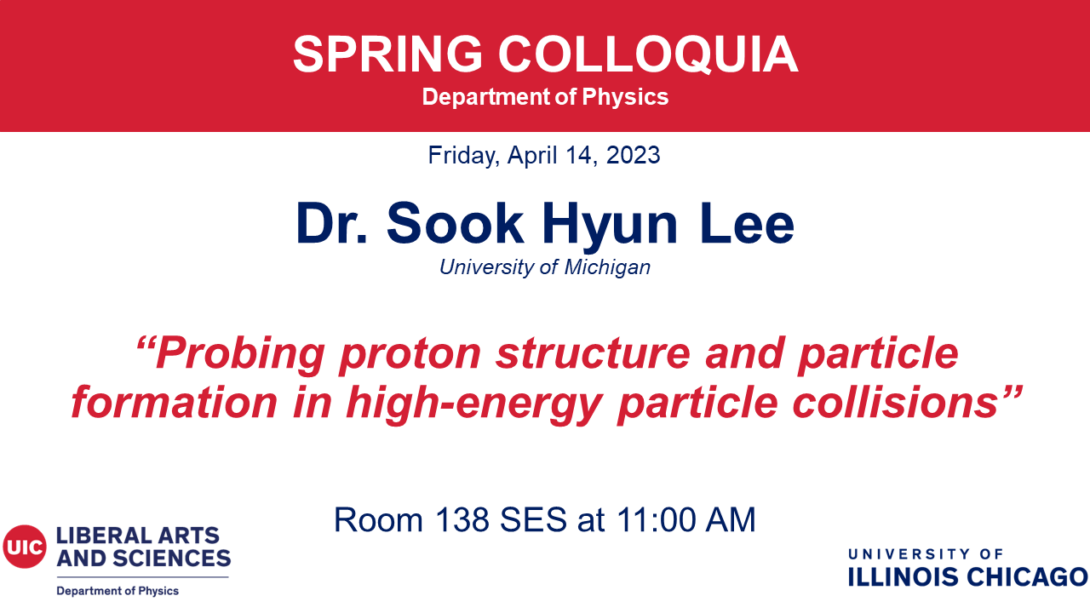Colloquium- “Probing proton structure and particle formation in high-energy particle collisions” with Dr. Sook Hyun Lee
Physics Colloquium
April 14, 2023
11:00 AM - 12:00 PM
Location
SES 138
Calendar
Download iCal File
The Standard Model of particle physics describes fundamental forces in the universe – electromagnetic, weak and strong interactions. The strong interactions between quarks and gluons, collectively called partons, via color charges is described by Quantum Chromodynamics (QCD). High-energy particle accelerators enable precision studies of the Standard Model and beyond and, in particular, answering fundamental open questions in QCD, concerning the processes underlying complex particle formation and the nature of emergent QCD. Hadrons are composite color neutral states that comprise much of the visible world around us. However, the hadron formation from freely moving, deconfined quarks is still not understood from first principles. The intricate and dynamic structure of a proton is only starting to be revealed. Hadrons often manifest themselves as part of a jet, a collimated array of particles generated by parton shower processes from an energetic parton created in high energy particle collisions. The progress in computing and probing the substructure of the jets has opened up new ways to study perturbative as well as non-perturbative aspects of QCD at different distance scales, a promising venue to explore hadron formation. In this talk, I will review past and recent studies on proton structure and hadron formation at the Large Hadron Collider and Relativistic Heavy Ion Collider, and discuss a path to the Electron-Ion Collider, an actively developing premier project in the U.S. Nuclear Physics program.
Date posted
Apr 13, 2023
Date updated
Apr 13, 2023